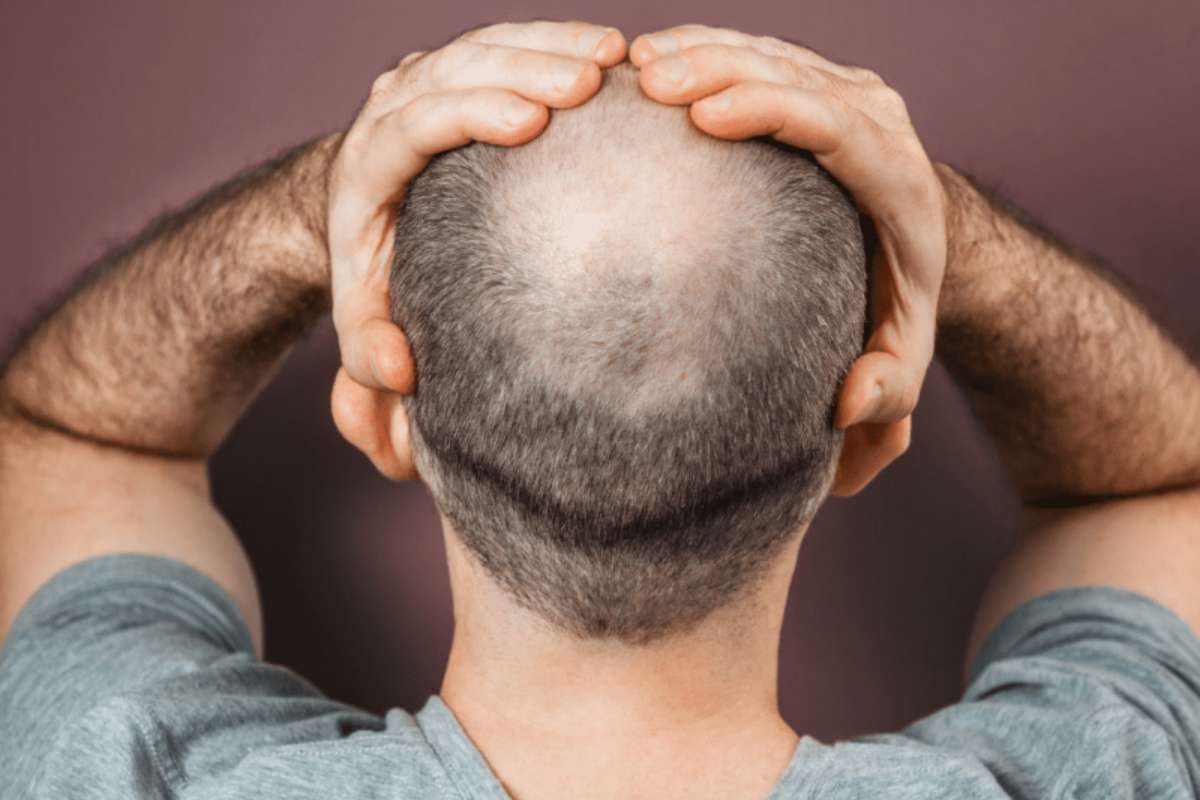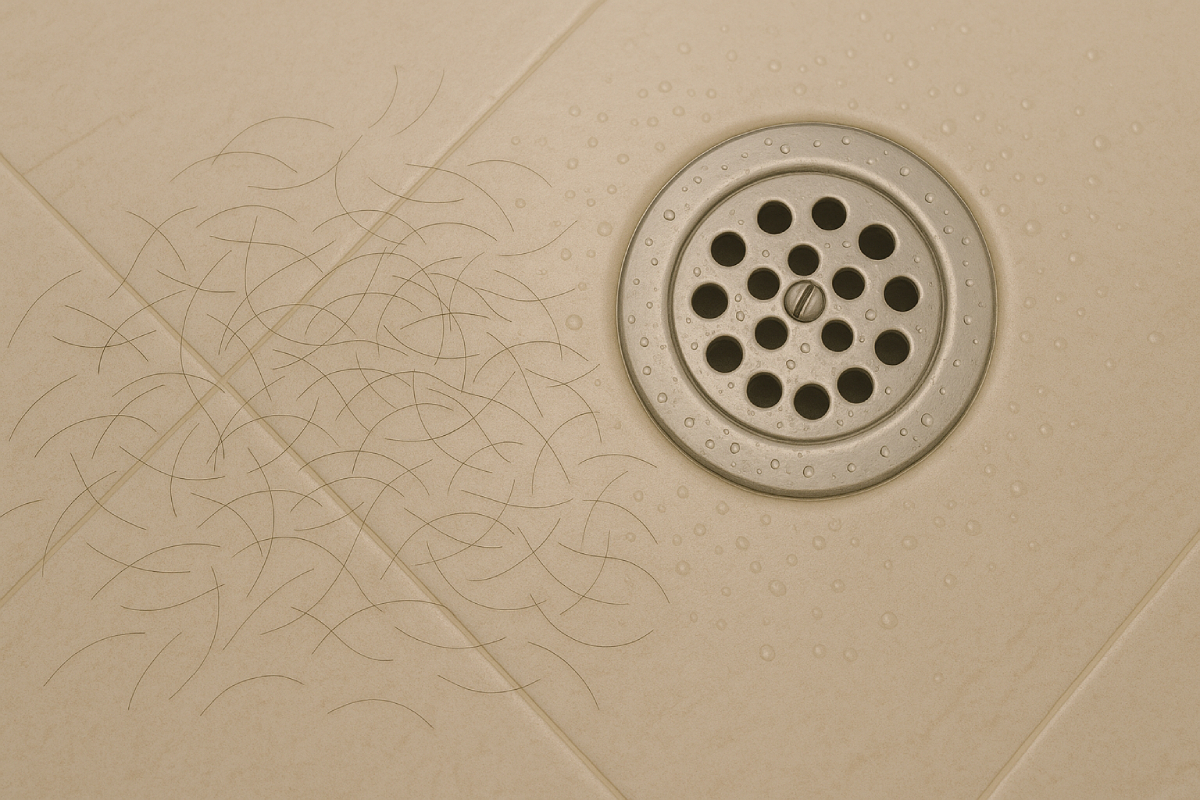Getting enough sleep is essential for keeping your body healthy and strong. Sleep gives your body the time it needs to repair and recharge, affecting everything from your immune system to your skin, and even your hair. When sleep is disrupted or cut short, it can lead to unexpected changes in your body, including hair health.
A lack of sleep can create stress on your body, disrupt important hormones, and interfere with the natural cycle of hair growth. Over time, these issues may lead to hair loss or make existing hair problems worse.
By understanding the connection between sleep and hair health, you can take steps to protect your hair and overall well-being.
Understanding the Hair Growth Cycle
Hair grows in a natural cycle that includes three main phases:
- Anagen (Growth Phase): This is when hair actively grows. It can last for several years and determines the length of your hair.
- Catagen (Transitional Phase): This is a short phase where hair growth slows, and the hair follicle begins to shrink.
- Telogen (Resting and Shedding Phase): In this phase, hair rests and eventually sheds to make way for new growth.
When this cycle is disrupted, it can lead to excessive shedding or slow hair regrowth. Sleep plays a vital role in keeping this process balanced. Without enough sleep, your body may struggle to repair and maintain healthy hair follicles, which are responsible for producing strong, vibrant hair.
The Impact of Sleep on Hair Health
Sleep is more than just a time for rest, it’s when your body repairs itself. During deep sleep, your body works to regenerate cells, repair tissues, and regulate important hormones. This includes the cells and hormones that support hair growth.
When you don’t get enough sleep, your body misses out on this crucial repair time. Lack of sleep can affect your levels of melatonin, a hormone that promotes healthy hair growth. It can also throw off your body’s balance of cortisol, a stress hormone. High cortisol levels caused by sleep deprivation can shrink hair follicles and make it harder for hair to grow.
In addition, sleep deprivation can weaken your immune system, which may lead to inflammation around hair follicles. This can make them less effective at growing new hair, leading to thinning or shedding over time.
So, when you don’t get enough sleep, your hair can suffer alongside the rest of your body.
Connection Between Sleep Deprivation and Hair Loss
Sleep deprivation can cause stress on your body, and stress is a known trigger for hair loss. When you’re not sleeping enough, your body produces higher levels of cortisol, a hormone linked to stress. This increase in cortisol can disrupt the natural hair growth cycle in several ways:
- Telogen Effluvium: Sleep deprivation can push more hair follicles into the telogen phase, causing excessive shedding. This condition often results in noticeable hair thinning, especially after prolonged periods of stress.
- Alopecia Areata: Chronic stress, including that caused by lack of sleep, can lead to autoimmune responses. In this case, your immune system mistakenly attacks hair follicles, causing patchy hair loss.
- Trichotillomania: Sleep deprivation can also heighten feelings of anxiety, which may lead to compulsive hair-pulling behaviors in some individuals.
When you don’t get enough sleep, your hair follicles don’t get the support they need to grow and stay strong. Over time, this can lead to weaker strands, breakage, or noticeable shedding. The good news is that in many cases, hair loss caused by sleep deprivation can be temporary if addressed early by improving sleep habits and reducing stress.
Scientific Evidence Linking Sleep Deprivation to Hair Loss
Research has shown that poor sleep quality can negatively affect hair health. One key finding is that sleep deprivation disrupts the body’s hormonal balance, particularly hormones like cortisol and melatonin, which play a role in maintaining healthy hair growth.
For example, studies have revealed that prolonged sleep disturbances weaken the immune system. A weakened immune system can cause inflammation around hair follicles, making it harder for them to function properly. This can lead to conditions like telogen effluvium, where hair sheds more than usual, or even exacerbate autoimmune conditions like alopecia areata.
Another study highlighted the importance of deep sleep in cell regeneration. When the body is deprived of this crucial stage of sleep, the repair of the hair follicle cells slows down, leaving them vulnerable to damage. These findings emphasize how critical sleep is for both the health of your hair and your overall well-being.
While lack of sleep doesn’t directly cause permanent baldness, the associated stress and hormonal imbalance can create conditions that lead to noticeable hair thinning or shedding.
Preventive Measures and Recommendations
The good news is that taking steps to improve your sleep can help protect your hair and even encourage regrowth if sleep deprivation has caused hair loss.
Here are some key tips to maintain healthy sleep habits and promote better hair health:
- Establish a Sleep Routine: Go to bed and wake up at the same time every day, even on weekends. Consistency helps regulate your body’s internal clock.
- Create a Restful Environment: Keep your bedroom dark, quiet, and cool. Avoid screens or bright lights before bed, as they can interfere with melatonin production.
- Manage Stress: Practice stress-reduction techniques like yoga, meditation, or deep breathing exercises. Lower stress levels can improve both your sleep quality and hair health.
- Eat a Balanced Diet: Include foods rich in essential nutrients, such as iron, biotin, zinc, and omega-3 fatty acids, which are all important for strong, healthy hair.
- Avoid Stimulants Before Bed: Limit caffeine and alcohol intake in the evening, as they can disrupt your ability to fall and stay asleep.
If you notice significant hair loss or thinning, consider speaking to a hair loss specialist. They can help identify whether sleep deprivation or other factors are contributing to the problem and recommend appropriate treatments or lifestyle changes.
Treatment Options for Hair Loss Related to Sleep Deprivation
If your hair loss is connected to lack of sleep, there are several options to address it. The key is to restore balance to your sleep patterns and give your body the support it needs to recover.
Here are some treatments and approaches to consider:
- Improve Sleep Habits: Focus on consistently getting 7-9 hours of quality sleep per night. Better sleep hygiene can help stop further hair loss and allow your body to repair hair follicles naturally.
- Topical Treatments: Over-the-counter solutions like minoxidil can help stimulate hair growth. This medication works directly on the scalp to revitalize dormant hair follicles.
- Oral Medications: If the issue persists, your doctor might prescribe medications such as finasteride, which can slow hair loss and promote regrowth in certain cases.
- Nutritional Supplements: Vitamins and supplements, particularly those containing biotin, zinc, or iron, may help strengthen your hair and encourage regrowth. However, always consult with your doctor before starting any supplement.
- Professional Therapies: Advanced options like low-level laser therapy (LLLT) can help improve hair density by stimulating hair follicles with light energy.
- Stress Management: Therapies like counseling or stress-relief techniques can help lower cortisol levels and reduce the impact of stress-induced hair loss.
The sooner you address sleep deprivation and its effects, the more likely you are to recover lost hair. Hair that has fallen out due to lack of sleep often grows back once sleep patterns are restored, provided there are no other underlying conditions causing the loss. For persistent or severe cases, seeking guidance from a dermatologist or hair loss specialist is crucial.
Does Lack of Sleep Cause Hair Loss?
Sleep plays a vital role in maintaining your overall health, including the health of your hair. When you don’t get enough rest, your body experiences stress that can disrupt the natural hair growth cycle, leading to thinning, shedding, or more noticeable hair loss conditions like telogen effluvium or alopecia areata.
The good news is that hair loss caused by sleep deprivation is often temporary. By prioritizing better sleep habits, managing stress, and addressing any additional factors that might contribute to hair loss, you can give your hair the best chance to recover and thrive.
If you’re struggling with persistent hair loss or are unsure of the cause, consulting a hair loss specialist can help you find answers and create a tailored treatment plan.
Remember, a good night’s sleep isn’t just important for how you feel, it’s essential for keeping your hair healthy, too.







